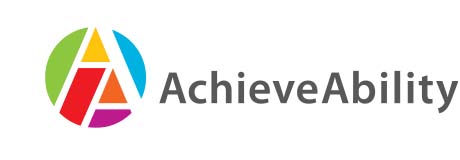AchieveAbility hosted a debate in the House of Commons on Wednesday 25 March.
Debate title: ‘Future Party Proposals and Dyslexic Neurodiverse Communities’
The debate chaired by Barry Sheerman MP followed by Dr Ross Cooper opened up discussion on what can work and what changes can happen for greater cohesive involvement of dyslexic and neurodiverse individuals in society.
Panel members were: Lord Addington, Kelvin Hopkins MP, Pat Edwards CEO Newtec, Dr Chantal Davies; Director of the Forum for Equality and Diversity University of Chester and Dr Nicki Martin; SouthBank University.
Over 100 people attended
The following were the debate themes
1. Collective Voice
The meeting expressed a collective voice that called for social justice equality to ensure the recognition of diversity of intelligence, and opportunities to express knowledge and skill utilising that wider range of intelligences.
2. Teacher Training, education and exams
The debate recognised the urgent need for embedded teacher training on dyslexia and neurodiversity so that education can become inclusive. In particular, exams must be changed so that they can capture our intellectual contributions, rather than disable us.
3. Human value
The meeting asserted our capacity to make a hugely positive, creative and innovative contribution, but, in contrast, endemic disabling systems often mean that we become demonised and can become a drain on social resources. There therefore continues to be a huge loss to society of dyslexic and neurodiverse talent, which impoverishes the world.
4. Social model of dyslexia and neurodiversity
There was a strong consensus that dyslexia and neurodiversity is about difference, not disability. But a clear recognition that our community is disabled, incapacitated and invalidated by current social and educational systems leading to the experience of difficulties for individuals. However, we flourish where we are valued for who we are, and allowed to express and develop our ways of holistic thinking. This is a human right, and is largely protected by current legislation even though it is rarely enforced.
5. Social inclusion, social justice and equality and the workplace
Dyslexia is currently misperceived as primarily an academic issue, when most of us are positioned in the practical world, even if the evidence is that we are more likely to be excluded from education and employment. This is despite our great successes in the creative industries, entrepreneurial activity and the caring professions. Greater emphasis should be placed on the dyslexic and neurodiverse lived experience and our on shared voice articulating the changes from which the whole society would benefit.
6. Strategy
The meeting argued for collective action, a 5 year strategic plan to match the political timetable, closer staging posts such as a call for more dyslexia awareness focused on our strengths, and a specific need to change assessment systems and processes so that they become more inclusive and accessible and thereby support academic standards more effectively.
Thanks go to:
Ross Cooper, Katherine Hewlett, Maria O’Conor. Kevin Maskell, Pierre Marsh
for the collation of this information
